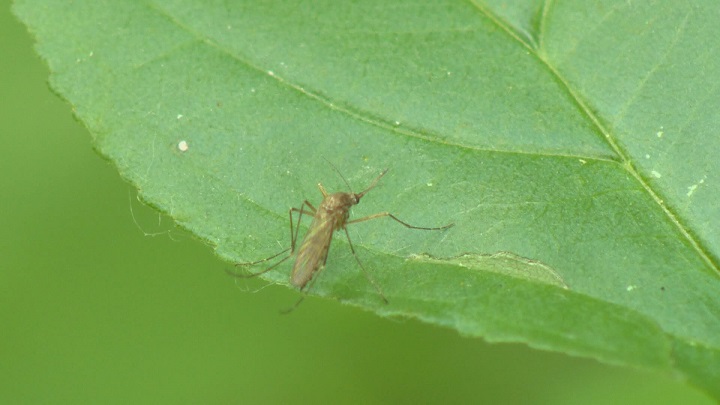Hamilton is reporting its first human case of West Nile virus this year.

That has prompted the city’s Medical Officer of Health to elevate the local West Nile virus risk from moderate to high.
Residents are being reminded to protect themselves against mosquito bites and to remove standing water from their property to prevent breeding.
Public Health officials say while about 80 per cent of people infected with West Nile will have no symptoms, others including older adults or those with weakened immune systems may experience West Nile fever.
Twenty per cent of those who are infected may also develop more severe illness, including — in extremely rare cases — inflammation of the brain or the lining of the brain.
Officials say symptoms will appear two to 14 days after being bitten by an infected mosquito.
Tips to avoid being bitten by mosquitos from the City of Hamilton:
-Use a mosquito repellent (bug spray) containing DEET or Icaridin.
-Avoid areas where mosquitoes are known to be present or cover up by wearing light coloured long sleeves and long pants when in mosquito areas such as wooded areas, on the golf course, or in the garden, especially at dawn and dusk when mosquitoes are most active.
-Reduce mosquito breeding sites by removing standing water at least weekly from your property. Mosquitoes lay their eggs in very shallow standing water. If you remove the standing water, they cannot lay eggs.

The City says it has completed three rounds of larviciding treatments on catch basins, in addition to ongoing treatment of surface waters on public land.
The first batch of West Nile-positive mosquitoes were found in late August, prompting the Medical Officer of Health to increase the risk level at the time from low to moderate.
- Health task force blasted over ‘dangerous guidance’ for cancer screenings
- Dentists hesitant to sign up for federal dental plan; seniors advised to look at all options
- David Chang’s Momofuku to stop ‘chile crunch’ trademark battle after outcry
- Preventing future pandemics goal of new U.S. partnership with 50 countries








Comments